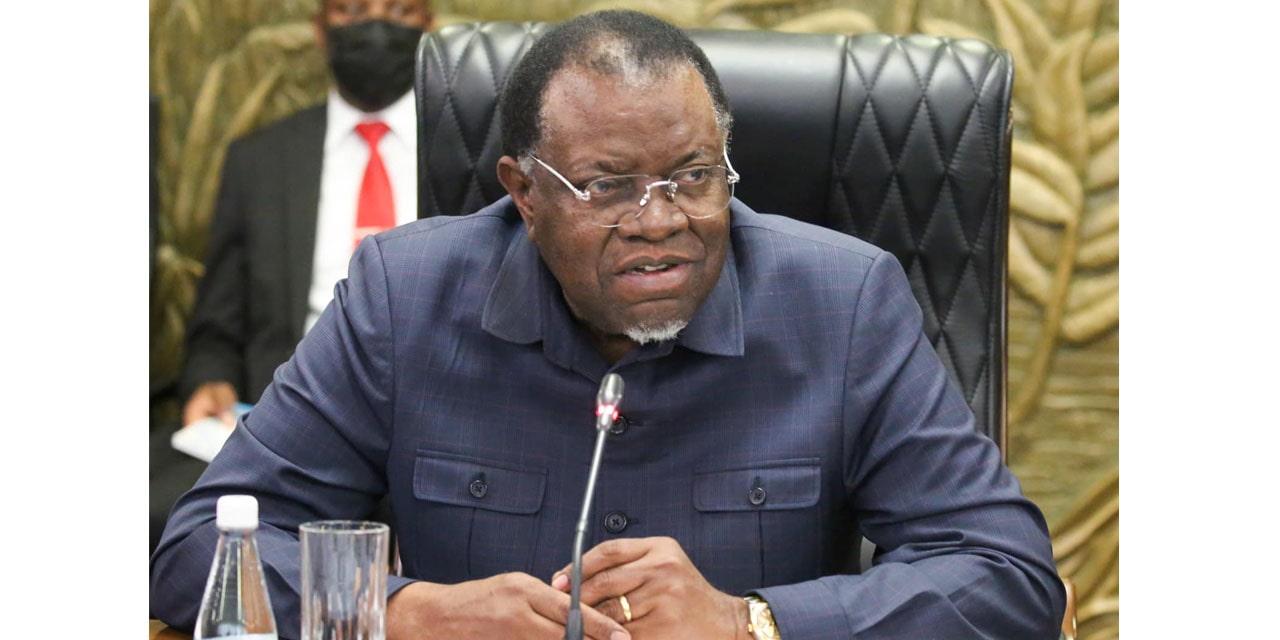Martin Endjala
President Nangolo Mbumba said that President Hage Geingob contributed to the country’s media landscape, including his role in promoting freedom of the press, and laid a solid foundation for developing a democratic society.
He said that a deep respect and gratitude should go to the late President, who championed freedom of the press during his tenure. Geingob often chanted that as long as he was alive and still the President, no journalist would be harassed, arrested or killed.
Mbumba said this yesterday, in commemoration of World Radio Day, which is celebrated every year on 13 February. This year’s World Radio Day is being observed under the theme, “A Century of Informing, Entertaining, and Education”.
“Today is an opportunity to celebrate radio as a powerful tool for communication and empowerment, and an instrumental part of our nation-building process.
The day serves as a reminder of the crucial role that radio plays in our lives and in shaping our society, as it has been a steadfast companion for a century, serving as a beacon of information, entertainment, and education for people across the globe,” he said.
The President highlighted that Article 21 of the Namibian Constitution guarantees freedom of speech and expression, which includes freedom of the press.
This fundamental right has enabled radio as a medium of mass communication in Namibia, reaching remote communities, providing essential news, public service announcements, and educational programmes, serving as an entertainment source, promoting local talent, and preserving cultural heritage.
Furthermore, Namibia has made significant strides in advancing its radio broadcasting sector, with a diverse range of stations catering to various linguistic and cultural communities that have positively contributed to the country’s economy and well-being.
Mbumba maintains that the success of Namibian radio lies in its ability to inform citizens, promote local content, and foster national unity.
In addition, he noted that radio broadcasting has played a pivotal role in strengthening the country’s democracy by providing a platform for open dialogue, debate, and the expression of diverse opinions.
Meanwhile, World Radio Day (WRD) was proclaimed by the United Nations Educational, Scientific and Cultural Organisation General Conference at its 36th session in 2011 and adopted by the 67th session of the United Nations General Assembly in 2012.
The date set aside was 13 February, the anniversary of the creation of United Nations Radio in 1946.
Deputy Minister of Information Communication and Technology Modestus Amutse has urged both the public and private sectors to maintain their support for radio stations through advertising, as this enables radio to fulfil its mandate of informing, educating and entertaining while upholding fact-based, high-quality journalism sustainably.
He reaffirms the ministry’s commitment to supporting radio stations through the formulation of a robust community media policy framework.
This framework Amuste explained, will foster the establishment and expansion of community media outlets by regulating key principles such as independence, programming, funding, governance, spectrum allocation and community participation, ultimately empowering grassroots communities.




